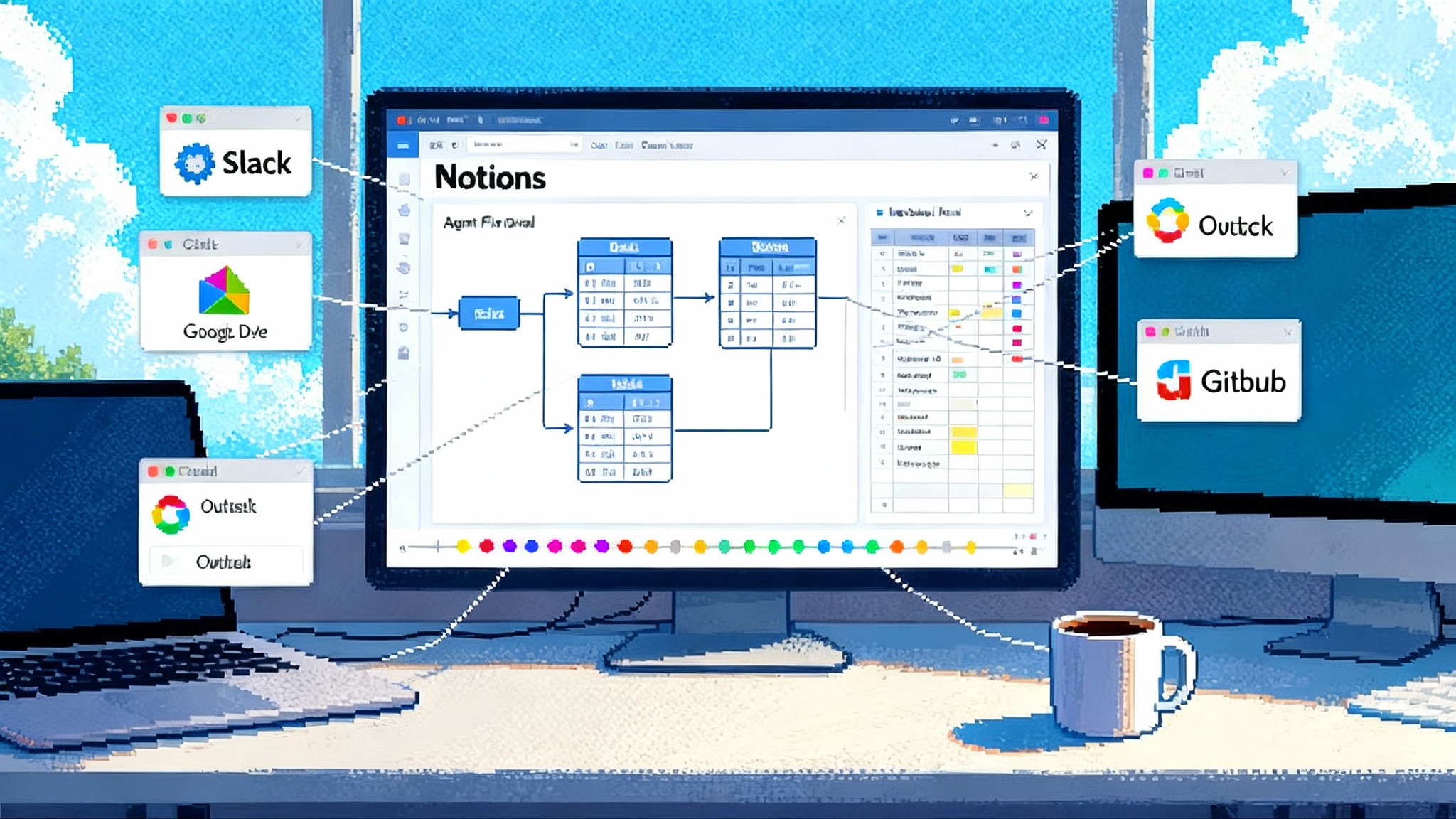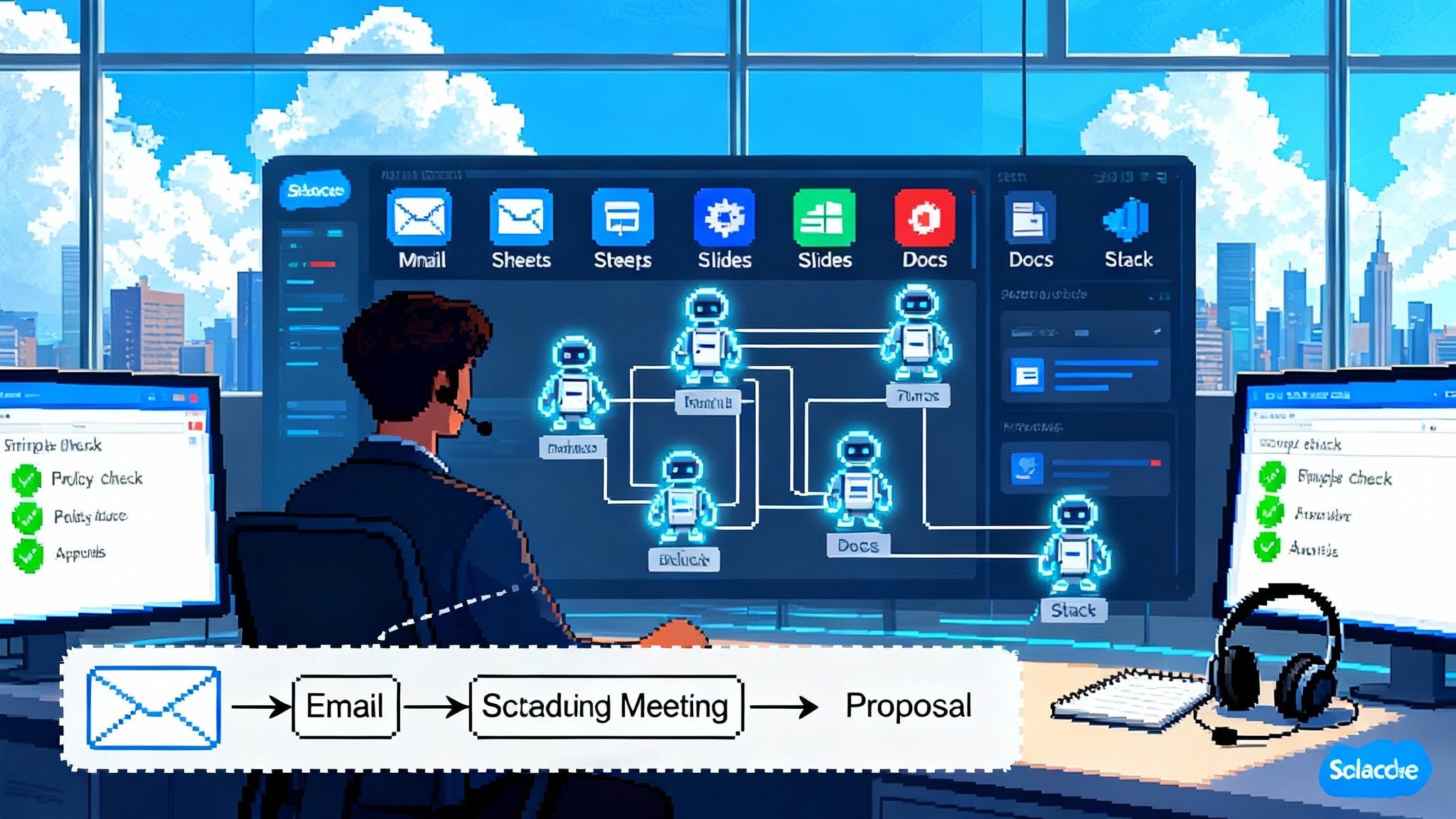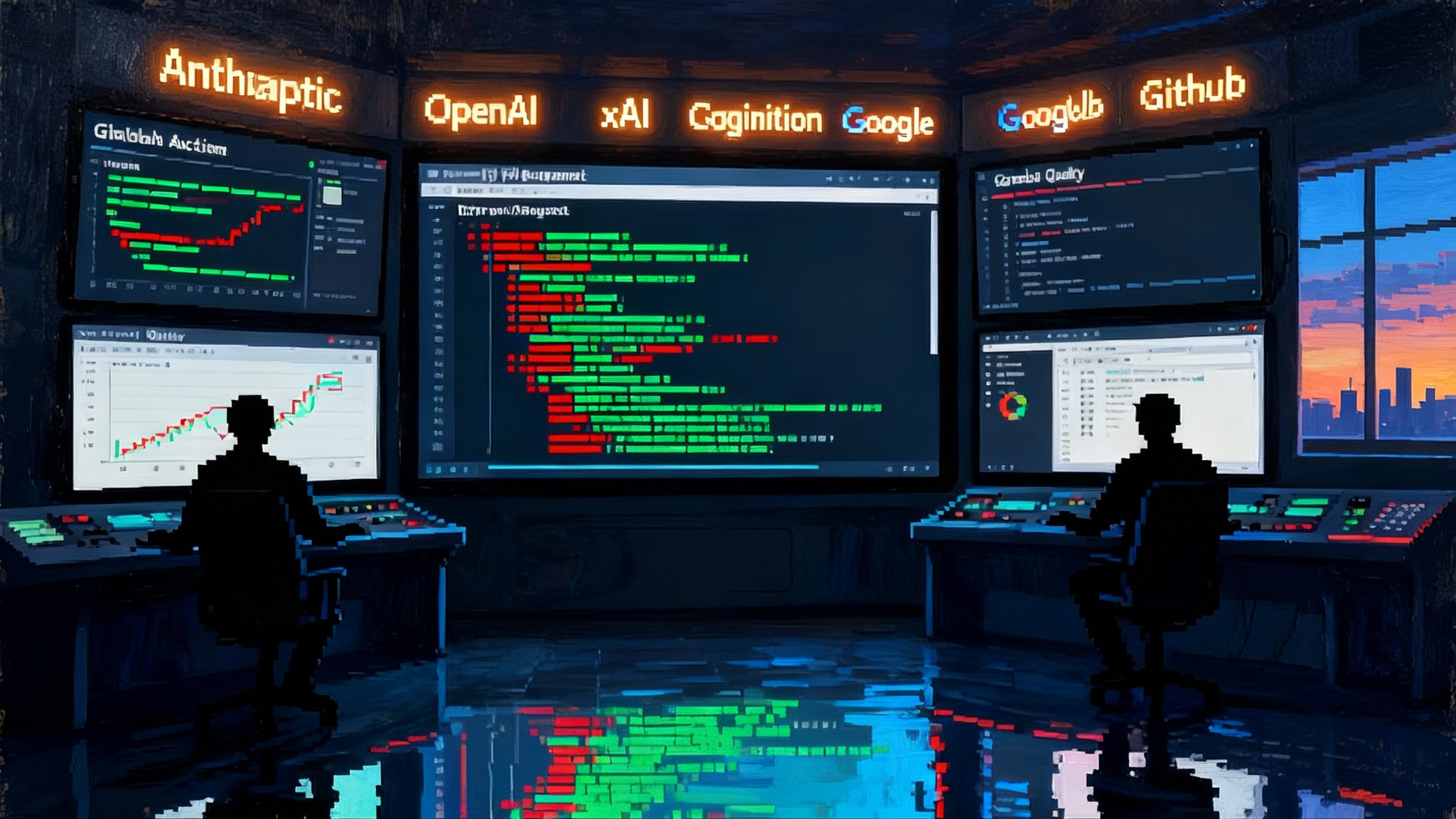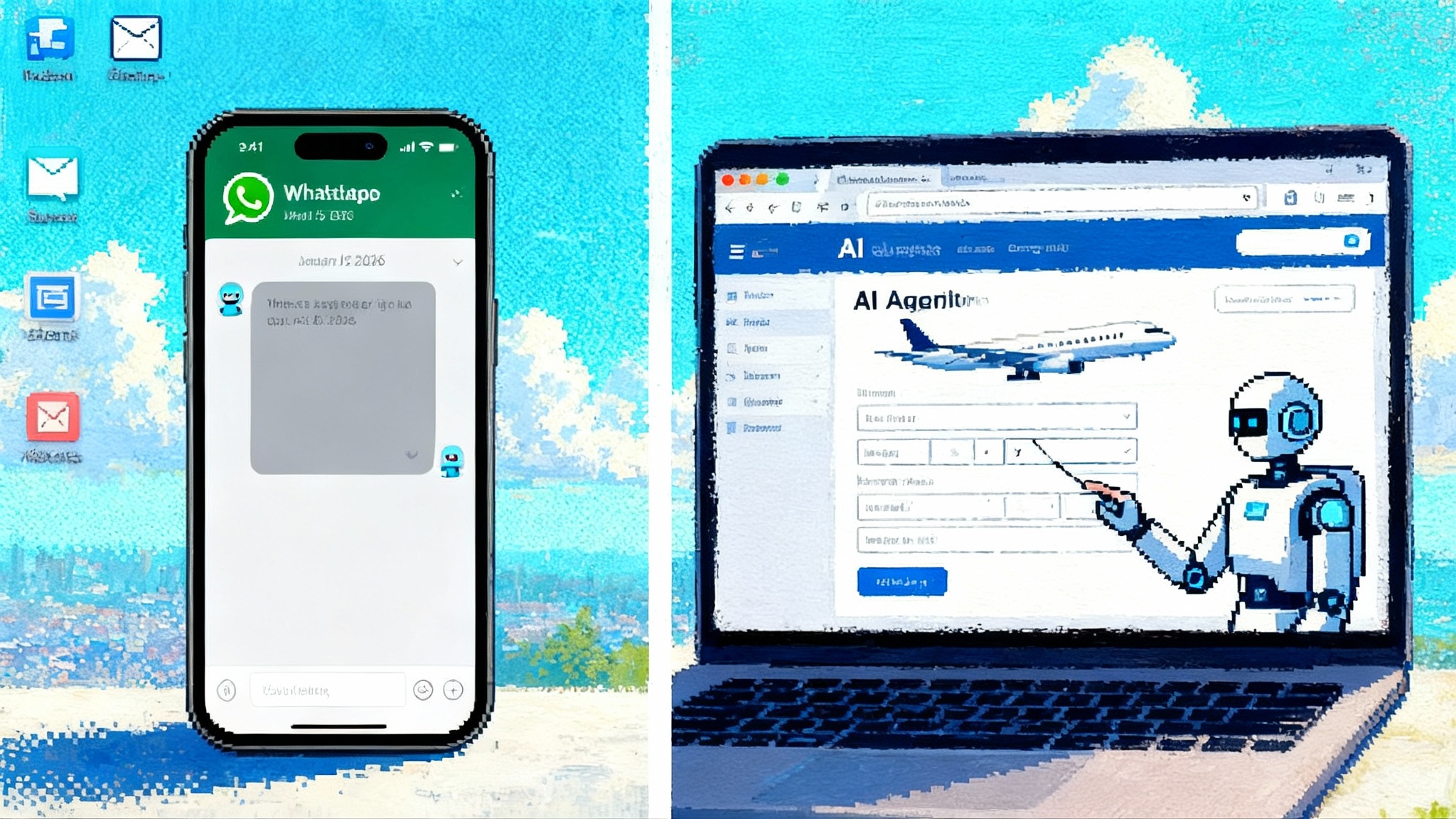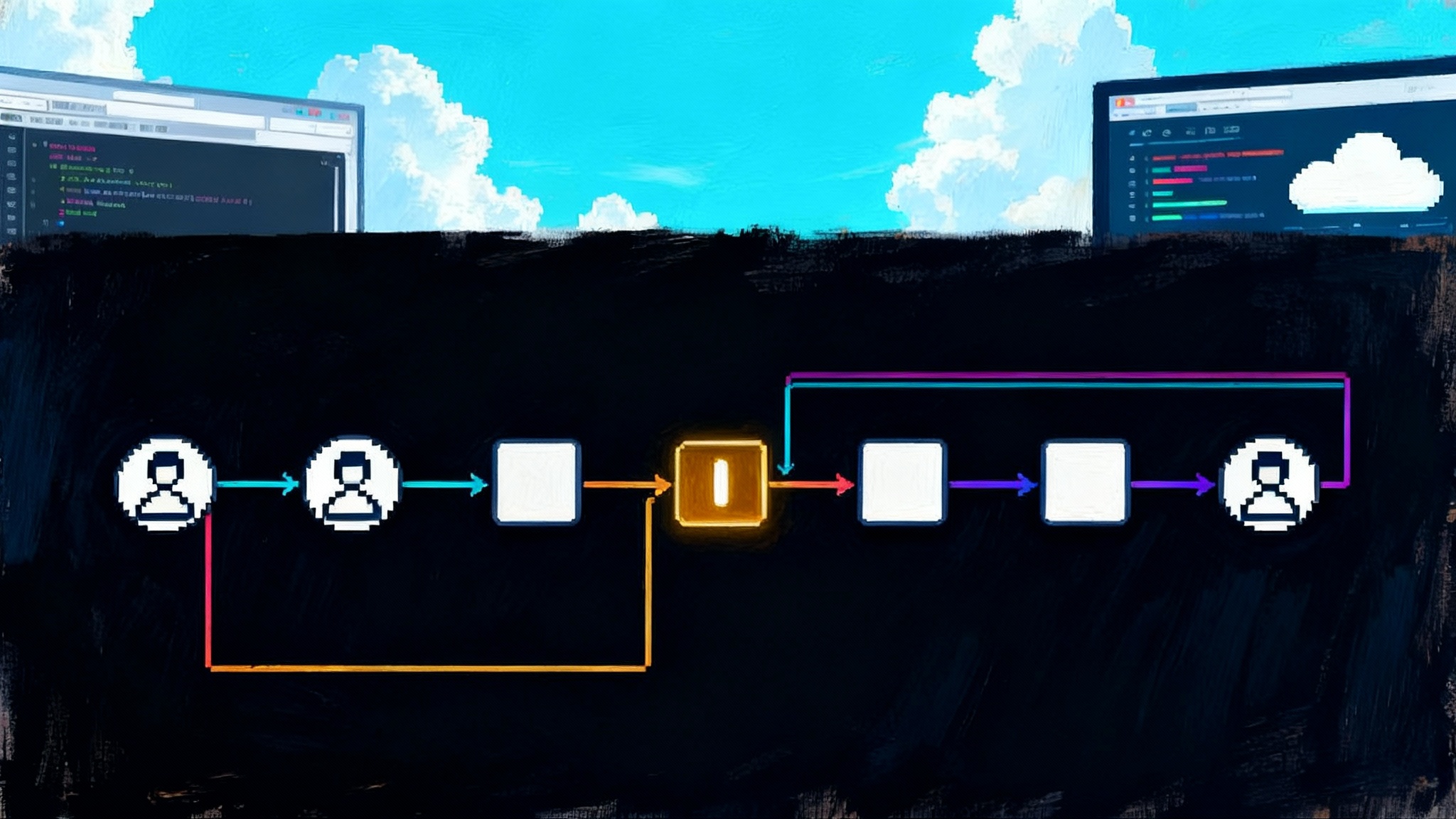 Artificial Intelligence
Artificial Intelligence
Articles under the Artificial Intelligence category.
Notion 3.0 Agents Turn Your Workspace Into the AI Runtime
Notion’s 3.0 Agents shift AI from sidecar chatbots to embedded coworkers that read, write, and act where your data already lives. Here is what changed, why it matters for Google, Microsoft, and Slack, and a pragmatic Q4 playbook to pilot it safely.
Reasoning LLMs Land in Production: Think to Action
Reasoning-first models now ship with visible thinking, self-checks, and native computer control. See what is real, what is hype, and how to launch a reliable agent in 90 days.
Figure 03 Brings Helix Home and Robots to Real Work
Figure’s 03 humanoid and its Helix vision‑language‑action system stepped out of the hype cycle in October 2025. With safer hands, faster perception, and BotQ‑scale manufacturing, real pilots in logistics and early home trials point to practical jobs and falling costs.
The Open Agent Stack Arrives: A2A, MCP, and AGNTCY
In three summer moves, agent interoperability jumped from slideware to shipping reality. With A2A entering the Linux Foundation on June 23, 2025, AGNTCY joining on July 29, and Solo.io’s agentgateway accepted on August 25, enterprises can now wire agents across vendors with real protocols and neutral governance.
Sora 2 makes video programmable, the API moment for video
OpenAI's Sora 2 now ships as a developer API with per-second pricing from 10 to 50 cents. With reusable cameos and multi‑clip storyboards, video becomes a programmable primitive that powers the next agentic stack.
OpenAI greenlights open-weight models and the hybrid LLM era
OpenAI quietly authorized open-weight releases for models that meet capability criteria, signaling a first-class hybrid future. Here is what changed, the guardrails, the cost math, and blueprints to run local plus frontier stacks without compromising safety or speed.
GPT‑OSS Makes Local Agents Real: Build Yours Today
OpenAI’s GPT‑OSS open‑weight family brings private, on‑device AI out of the lab. This guide shows a practical local agent stack, what it changes for enterprises, and two hands‑on builds you can run now.
Claude Agent Skills signal the modular turn for real agents
Anthropic’s Agent Skills turn general chatbots into composable, governed capabilities. This analysis shows how Skills reshape developer workflow, operations, and business models, plus what to expect over the next year.
Atlas Reveals the AI Browser Era: From Search to Action
OpenAI’s ChatGPT Atlas puts a full agent inside the browser tab, turning the web from search and click into ask and act. This breakdown explains what is truly new, why it pressures search and checkout flows, and a 60-day playbook for builders.
Agentforce 360 General Availability Starts the Agentic Era
Salesforce made Agentforce 360 generally available on October 13, 2025, alongside deeper Google Workspace, Gemini, and Slack integrations. Here is what actually changed, why it matters, and a 90-day playbook to capture value.
GitHub Agent HQ makes orchestration the new AI battleground
At GitHub Universe 2025, the company unveiled Agent HQ, a neutral mission control that seats agents like Claude, Grok, Devin, and OpenAI inside pull requests, Actions, and VS Code. The agent wars now hinge on orchestration, governance, and CI/CD that ships reliable code.
Guardian Agents and AI Firewalls Are the New Enterprise Moat
Fall 2025 turned AI agents from demos into daily operators. That shift created a parallel market for guardian agents and AI firewalls between models, tools, and data. This blueprint shows how to build that runtime policy layer now.
WhatsApp locks out rival AI bots as agent wars shift to OS
Meta has updated WhatsApp’s Business API to bar general-purpose AI assistants starting January 15, 2026. Here’s what changes, why it matters, and where to rebuild distribution across the browser, OS action layers, SMS, and email.
Microsoft’s Unified Agent Framework Exits the Lab for Work
Microsoft has folded AutoGen and Semantic Kernel into a single, open-source Agent Framework with typed workflows, built-in observability, human approval gates, and cross-runtime interop. Here is what changed and how to ship with it this week.
Agentic Commerce Arrives: Inside ChatGPT Instant Checkout
Late 2025 pushed AI agents from demos into real checkout flows. See what the Agentic Commerce Protocol standardizes, why retailers and networks are racing to copy or complement it, and a 30-60-90 day plan to get agent ready before the holidays.
Devin at $10.2B: AI software engineers join headcount
Cognition’s Devin crossed from demo to deployment in late 2025. With a $10.2B valuation, the Windsurf acquisition, and enterprise features like persistence, rollback, and an agent-native IDE, engineering leaders can budget, govern, and staff agents alongside people in 2026.
Agent Bricks Makes the Lakehouse the Agent Runtime
Databricks and OpenAI are collapsing the agent stack into the lakehouse. Here is how lakehouse‑native governance, evals, and action gating turn demos into production systems while reducing risk and lock‑in.
MCP Goes Enterprise: The Interop Layer For Real AI Agents
Enterprise-grade MCP servers, OAuth-bound access, structured outputs, and elicitation just turned agent demos into deployable systems. Here is the practical playbook, risks, metrics, and reference architectures to ship governed action across ChatGPT, Claude, Gemini, and Amazon Q.
